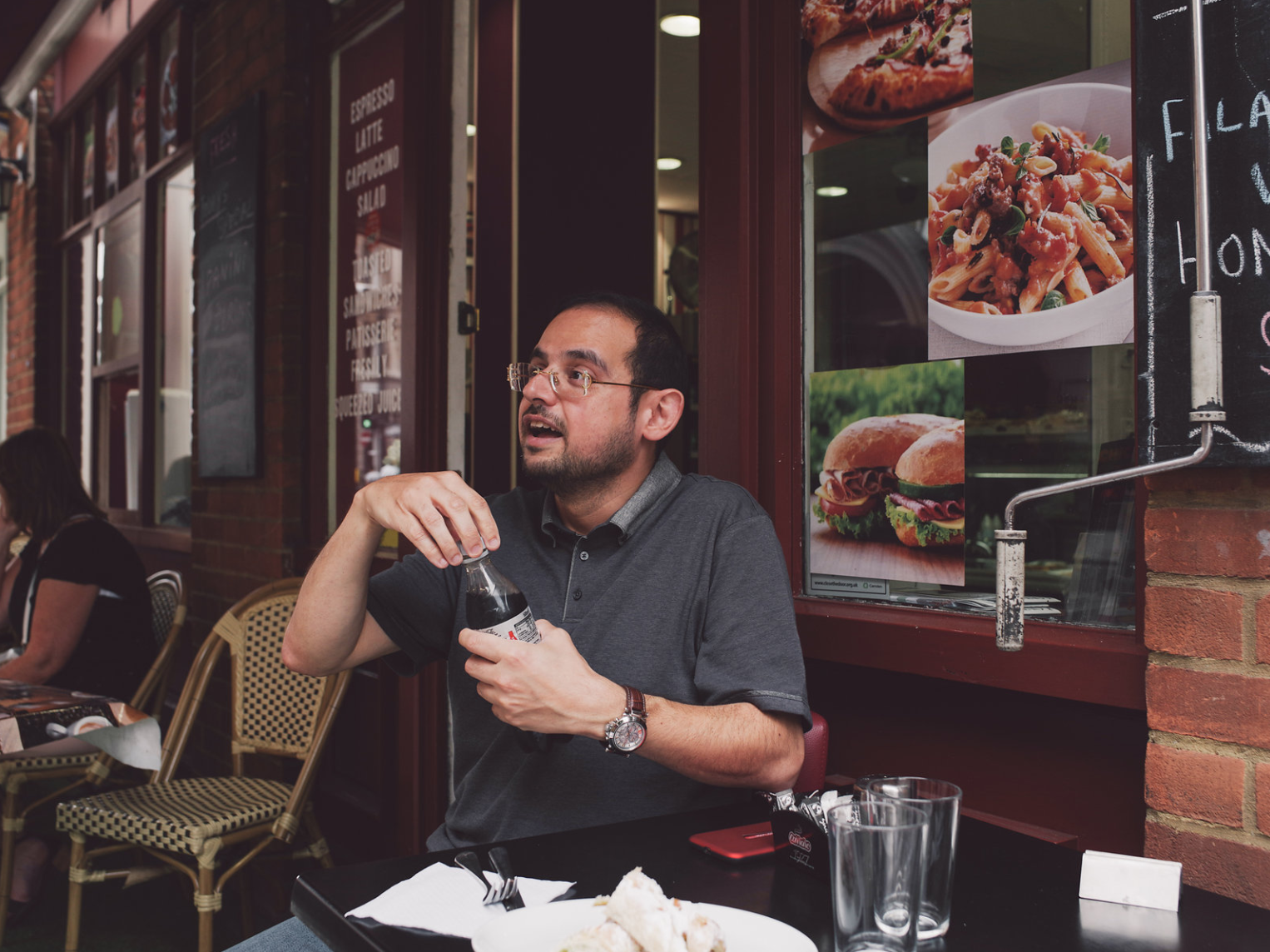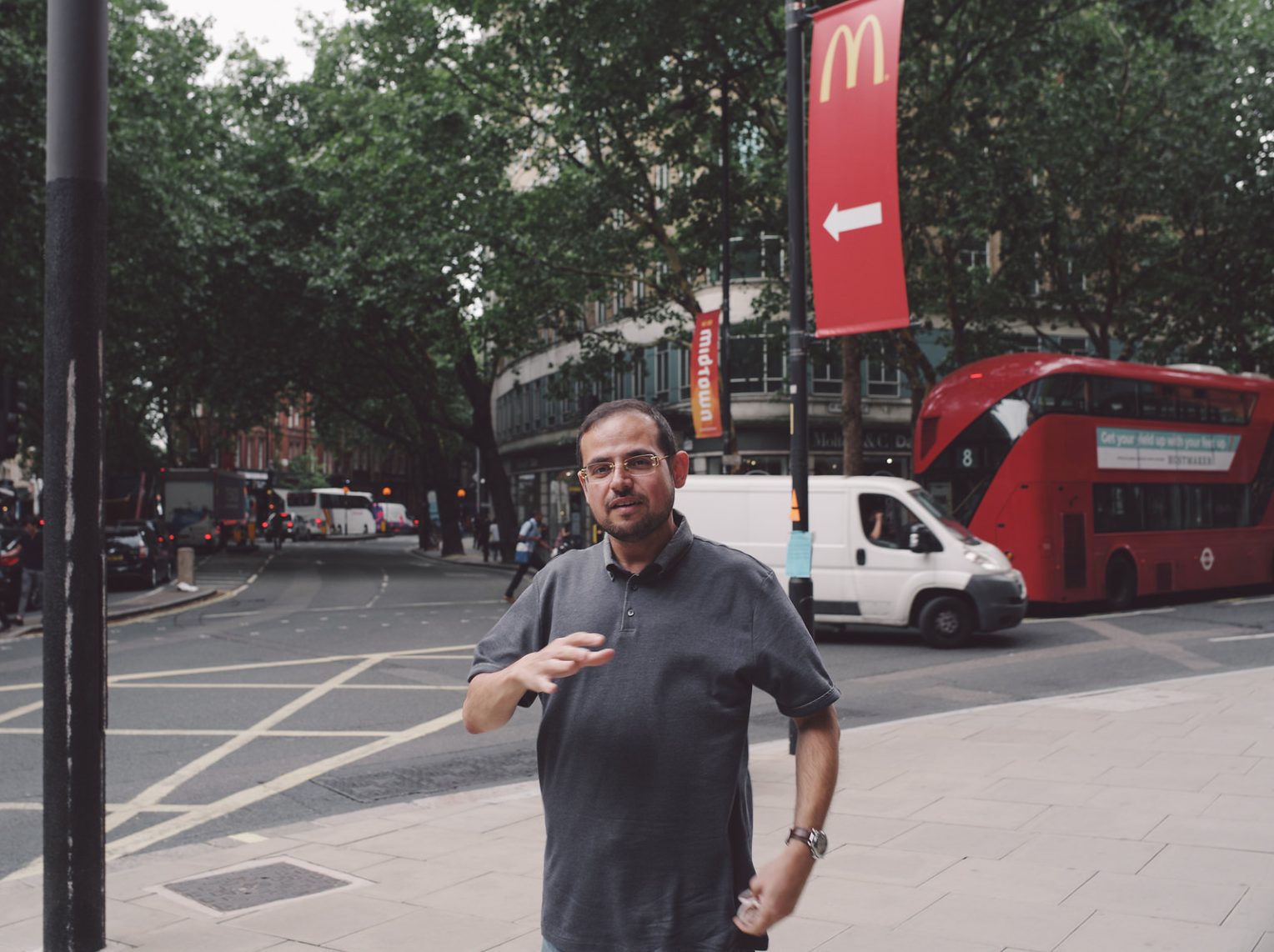I Was MI6’s Top Spy Inside Al Qaeda
This article originally appeared on VICE UK.
Ducking into a Peshawar internet cafe, one of al Qaeda’s chief bomb makers—fresh from years in the Darunta jihadi camp in Afghanistan—was making a critical decision to jump the fence and spy on the men he’d spent years working with. It was a move that, trapped between the dull blade of an al Qaeda executioner and his own battles with his faith, could not be reversed.
In 1999, four years after taking up jihad, the man now known as Aimen Dean had seen enough. What had begun as saving Muslims from persecution in Bosnia had morphed into being part of a cell that had bombed two US embassies, killing 224 people, in Kenya and Tanzania. Heart-thumping with one eye on the door, Dean watched the files of al Qaeda’s A to Z of bombs and poisons slowly copy to another hard disk. He knew that this disk would grant him protection if he could reach the authorities—but if he was apprehended, it was a ticket to certain beheading.
Once his get-out-of-jail disk was secured, Dean flew to Qatar, where he was arrested by Qatari officials. The people who arrested him gave him a choice: become an asset for UK security or the French. Dean chose the UK and soon became MI6’s prized asset, providing a level of access to a part of Afghanistan largely cut off from internet and radar. At one point, he was the only “in” on al Qaeda’s WMD regime, helping expose campaigns to gas the New York subway, as well as the recruitment and funding of terror campaigns by UK imams like Abu Hamza and Abu Qatada.
Dean’s cover was blown in 2006, when an excerpt of The One Percent Doctrine—a book about America’s counter-terrorism efforts—was published in TIME magazine. Sources quoted in the book provided enough details about a spy known as “Ali” that al Qaeda command could have conceivably worked out that the mole was the man who’d spent a decade making their bombs.

Today, sitting outside a cafe in Tottenham Court Road, London, the bespectacled and softly spoken 39-year-old looks neither a jihadi nor a super spy who spent ten years with some of the world’s most dangerous men, among them Osama Bin Laden. Dean tells me he initially admired the man who would later become the world’s most hunted terrorist. “He was very tall—well over six foot—and he was very quietly spoken, like a kindly headmaster,” he says. “There was no sense of the menace or rage he later had.”
Dean’s journey into jihad was accelerated by personal tragedy. Growing up in Saudi Arabia, his father was killed in a road accident when he was four years old, and his mother died suddenly when he was 14. By 16, a bereft Dean needed little encouragement to follow his high school teacher and older friends, who by this point, were fighting Serbian militia alongside Bosnian Muslims.
“Jihad didn’t need me; I needed jihad,” he says. “On TV, I watched Bosnian Muslims get shot by Serbian snipers or blown up whilst going to buy bread. I wanted to become a martyr for this cause.”
Given just two days of medical training, he was dumped on the front line as a paramedic, and quickly realized that war wasn’t all that glorious. “Men were screaming in pain, yet any noise or signal for help would mean a sniper would pick you off,” he says. “One man had been machine-gunned in the stomach. I tied my scarf around his middle to hold his intestines in.”
At school, Dean had excelled at both maths and maps—skills which suddenly became useful when he was tasked with firing 120mm mortars at enemy targets. In one skirmish, he fired a shell that landed a direct hit on Serbian soldiers hiding in a cemetery. “I felt no sympathy for them,” he says. “We had found the charred remains of babies and the bodies of many women and children in Muslim villages. The Serbs we fought were responsible for terrible atrocities.”
When the Bosnian War ended, Dean’s desperation to become a martyr took him to Afghanistan and al Qaeda’s hideout in Darunta. Here, doubts over the group’s actions that had trickled into his mind in Bosnia suddenly became a flood.
Within three years of leaving his Saudi home, he had witnessed comrades kill Serbian prisoners and was now tasked with making poisons and weapons for killing civilians, testing botulinum toxins on hutches of rabbits. Talk had veered from building weapons to protect vulnerable Muslims to targeting the West with suicide attacks and devices to detonate in cinemas, city squares, and nightclubs. “Al Qaeda was about killing innocent people,” he says. “The guilt of the testings haunted me as an animal lover, too. In my dreams, I used to see rabbits chasing me.”
Being penned in the camp with some of the world’s most hateful people only cemented Dean’s desire to turn against them. “Abu Nassim—who would later mastermind the Tunisian beach attacks—throughly enjoyed torturing rabbits in our weapons tests,” says Dean. “He was a full-blown psychopath. He would tell stories about his days as a drug dealer in Milan, but mainly he ranted about destroying the West.”
Using a mix of chemicals and Casio watch batteries bought in the markets of Pakistan, the bomb-making work was extremely risky. “Abu Hamza always claimed he lost his hands and an eye fighting Soviets or removing landmines, but really he ignored advice about mixing chemicals at the wrong temperature,” he claims. “A compound blew up in his hands, which was left stuck to the ceiling.”
Having agreed to help MI6 expose al Qaeda’s work, Dean needed to continue making bombs but says he would deliberately ensure the devices didn’t quite work, or create problems to delay their use, all the time working alongside aspiring killers.
Dean fed information back about British-based jihadi Hamayun Tariq, a mechanic from Dudley, West Midlands. Dean originally led Tariq on a deliberately flawed scheme to poison car door handles using nicotine, in a bid to kill people on touch. “Since then,” says Dean, “he has become very skilled and is arguably the best bomber to emerge from Britain. He is now determined to drone-strike stadiums and public events. He was responsible for the banning of laptops on planes.”

Throughout his time working for MI6, Dean periodically found himself in the UK, infiltrating the fervent jihadi scene surrounding Finsbury Park mosque in the early-2000s. Dean says that none of the men at the top of this scene—Abu Hamza and Abu Qatada, among others—should ever have been imams, as they were imposters. “Men like Qatada didn’t even know the Quran, yet were giving already psychotic people fatwas (decree) to kill others,” he says. “He issued a fatwa for Algerian men to kill police officers, diplomats and the families of municipal workers—babies’ heads were smashed against walls.”
Throughout his time spying for MI6, Dean had his nerves rattled on numerous occasions. In Afghanistan, one of al Qaeda’s secret police put a gun in his spine to test his reaction. “He said to me, ‘The game is over; we know who you are.’ The intelligence within al Qaeda would do these shakedowns, even though it was against camp rules to stick a gun on someone.” During his time in the Darunta camp, six other spies were captured and beheaded. The only one who evaded capture was him. “I could never watch the trial or executions of spies. My own sanity wouldn’t allow it,” he says.
Once his cover had been blown, Dean came to live in the UK and attempted to lead a normal life, working in counter-terror detection in other areas. He is remarkably indifferent about the dangers he faces, even considering many of his would-be executioners are now in prison or long-time detention. But his past can creep up on him. He abandoned a 2016 trip to a family wedding in Bahrain after authorities tipped him off that two assassins were waiting to kill him when he arrived there. On another occasion, he even dodged a former al Qaeda cohort on the tube train at Kensington, hiding in a Boots pharmacy until the danger passed.
With the battle against extremism still to be won, Dean has a warning for any would-be jihadists. “I spent six years of my life in five different war zones,” he says. “I can tell you that the nation-state you hate now should never be taken for granted—police, hospitals, society. These wannabe jihadists have never had a day without a hot meal. They can’t even last without internet. Think about what you seek to create.”
Aimen Dean’s book, Nine Lives—My Time as MI6’s Top Spy Inside Al-Qaeda, is out now.
Sign up for our newsletter to get the best of VICE delivered to your inbox daily.
Follow Andy Jones on Twitter.